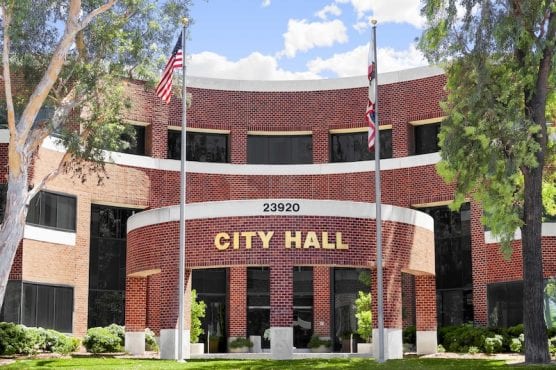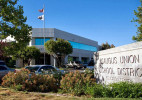The Santa Clarita City Council has expressed support for a federal bill that proposes to restore local control over public infrastructure specific to 5G network service.
Council members voted unanimously at their last meeting of the year on Dec. 10 to stand behind S. 2012, which Sen. Dianne Feinstein, D-California, introduced in June.
The legislation aims to nullify rules placed by the Federal Communications Commission that “revoke state and local authority to regulate telecommunications equipment deployment and to determine the amount of payment for the use of such equipment,” according to the bill’s text.
In 2018, the FCC, which serves as the main authority for communications law, adopted regulations with a goal to speed up the deployment of 5G, ultimately limiting the abilities of cities, such as Santa Clarita, to control where small wireless facilities needed for the deployment of 5G network services may be placed and operated.
The fifth generation of wireless cellular technology, known as 5G, is intended to support new technologies such as autonomous vehicles and other uses that will require near real-time connectivity and low latency.
“What that has done for the city and other municipalities around the country is it limits our ability to control where these things can go, what they look like, while also impacting the way we go about processing the requests,” said Benny Ives, a city information technology manager.
5G antennas operate at a higher frequency, meaning the communication does not travel as far nor penetrate buildings deeper than lower frequencies. Wireless carriers would have to place infrastructure elements in close proximity to one another.
“That being said, they’re very interested in street lights because they’re fairly spaced apart, about 140 feet apart, (and) they have power and data,” Ives said.
Last month, the City Council adopted a draft on a new wireless policy specific to 5G to help the city understand recent changes in FCC law and remain within the mandates required while also keeping the city’s public right-of-way from becoming “unsafe and unsightly,” Ives said.
In its 2020 legislative platform, the city also included a component to “oppose legislation that limits or eliminates local discretionary review of the installation of small cell wireless equipment or any wireless technology facilities on public infrastructure or in the public right of way.”
S. 2012 was last referred to the Committee on Commerce, Science and Transportation.
Like this:
Like Loading...
Related





 Tweet This
Tweet This Facebook
Facebook Digg This
Digg This Bookmark
Bookmark Stumble
Stumble RSS
RSS




























REAL NAMES ONLY: All posters must use their real individual or business name. This applies equally to Twitter account holders who use a nickname.
0 Comments
You can be the first one to leave a comment.